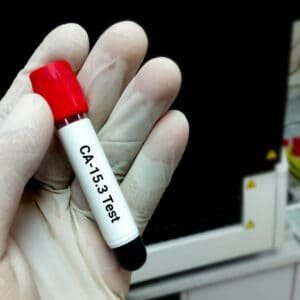Description
What is a double marker test?
what is a double marker test? A Double Marker Test is a type of test that in mainly given to pregnant women to determine any chromosomal malformation in the foetus. This test also plays a vital role in the detection of any kind of neurological conditions in the foetus, such as down’s syndrome or Edward’s Syndrome.
What happens if double marker test is positive?
These ratios are pointers for understanding the probability of a child suffering from any disorder. In case the result of the double marker test is positive, the doctor might recommend further diagnostic procedures like amniocentesis or chorionic villus sampling to find the problem.
What is the normal result of double marker test?
Standard results for the double marker test
Low-risk (“screen-negative”) is considered a “normal” result and means that there’s a low probability of your baby having chromosomal abnormalities.
What week is double marker test?
Interpretations. All women should be screened for dual marker test in pregnancy for any pre-birth abnormalities irrespective of age. The ideal duration of this test is between 10-13 weeks of pregnancy. But it can be done between 9-13 weeks of pregnancy.
What if double marker test is missed?
These two tests are performed during the 15-20th week of pregnancy. Thus, in case you miss the double marker test, you may opt for a triple or quad marker test later on.
Can double marker test identify autism?
In a 2012 study of a similar test involving 170 children with autism and 115 children without autism, the test could accurately identify autism in two-thirds of children who had the condition. That test, which looked for differences in the expression of 55 genes, was later licensed to SynapDx.






Reviews
There are no reviews yet.